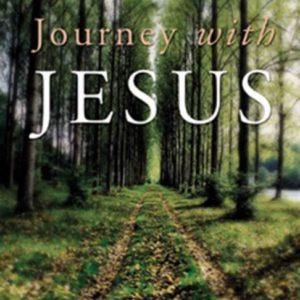 After we are saved and begin our relationship with God, we learn that our journey with Him has just started. We discover that even everyday, ordinary components of life-relationships, emotional security, accomplishments, our profession or position, financial stability or even our cultural or national heritage—can hinder us from fully giving our lives for His purposes and growing closer to Him. One by one, God calls us to walk away from them.
After we are saved and begin our relationship with God, we learn that our journey with Him has just started. We discover that even everyday, ordinary components of life-relationships, emotional security, accomplishments, our profession or position, financial stability or even our cultural or national heritage—can hinder us from fully giving our lives for His purposes and growing closer to Him. One by one, God calls us to walk away from them.
Abraham, Moses and Joseph—all those in the “cloud of witnesses” who have gone before us—were also called to walk away from “normal” lives. Let us see how they responded:
“All these people . . . admitted that they were aliens and strangers on earth. People who say such things show that they are looking for a country of their own. If they had been thinking of the country they had left, they would have had opportunity to return. Instead, they were longing for a better country—a heavenly one. Therefore God is not ashamed to be called their God, for he has prepared a city for them” (Hebrews 11:13-16, NIV).
The “opportunity to return”—what a significant statement this is!
It is a challenge to follow His call to walk away from these things—but it is an even greater challenge to realize we always have the chance to turn around, to go back to a life that is more comfortable, perhaps, yet unsurrendered.
Our enemy, the devil, knows this, and he works hard to persuade us to do so. Let us look at four things he uses to try to make us return:
Material things
Demas, one of Paul’s co-workers, had this problem. This man traveled so many miles with Paul and shared hardships with him; he could have become another Timothy, but Paul says of him, “Demas has forsaken me, having loved this present world” (2 Timothy 4:10). We will always face financial struggles and difficulties of some sort, have friends who are better off than we are, and feel the need to do something to improve our lives and take better care of our families. The devil will use this. It’s a strong pull, but we must make a decision: Life or death, we will not return.
The fear of the unknown
The children of Israel suffered under terrible slavery in Egypt. Yet after God led them out and did mighty acts on their behalf, they longed to return, remembering the leeks and the garlic. What happened? They were afraid of what would happen to them in an unfamiliar land filled with giants. We, too, face unknowns; what we must remember is that God is bigger than the giants, our problems and our fears.
Losing our focus and vision
Paul’s earthly journey was marked with one focus: a passion to see people come to Christ. He kept this focus right up until the end of his life and was able to say with confidence, “I have finished the race” (2 Timothy 4:7). You and I can only continue in this journey as long as we keep sight of the vision before us. Let us not allow the devil to use the day-to-day discouragements to take our eyes off our purpose. The passage in Hebrews promises us that God has prepared a heavenly city for those who follow Him in faith. But what good is a city that has no people in it? Our goal is to populate that city, to bring a world of souls with us into eternity.
Spiritual deception
So many Christians lose sight of God’s call when they become ensnared in self-focus and introspection—all in the name of godliness, deeper life and devotion. But only one theme runs through the entire Bible: Christ, the Savior of the world. The Old Testament promises the coming of the Redeemer; the New Testament narrates Jesus’ birth, death and resurrection to save the lost and gives instruction to believers on living and demonstrating Christ’s life to the world. It is a fact-knowing Christ and walking intimately with Him will produce a love and passion for the lost world. If our so-called “deeper life” doesn’t have this result, it is a counterfeit.
So as we face the pull of this world and the pressure from the devil to walk away from God’s call, let us remember that we are on earth for only a short time. We are strangers and aliens to this world; we only have a visa for this life, but our passport is from another country.
The men and women of Hebrews chose not to return to their earthly country because they recognized that God’s work went beyond time and space. Their true country was a heavenly one. May the Lord find us, too, focused on what is real and authentic—beyond circumstances, what we feel, what others say or what the enemy throws at us.
And if He were to write another chapter like Hebrews 11, may He find your name and mine as examples there for others to follow.
Dr. KP Yohannan
Founder & President of Gospel for Asia
